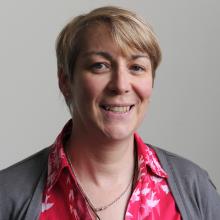

I was recently on a flight where the potential boredom factor, particularly for children, could have been quite high. Sitting behind us was a mum and her two children. I guess they were aged between 4 and 7ish. They were absolutely delightful. The youngest child, I noticed, was full of questions. Her mum did a sterling job of answering appropriately with great patience.
Near the end of the flight her mum gently indicated that question time was over and they had to get ready for the plane to land and then get off. As a tag line, she added "I'm all questioned out", which elicited knowing chortles from the surrounding adults. Her youngest daughter was full of curiosity and rather than stifle it, it was encouraged. It reminded me of the many times I exhausted my parents with "but why ..." and "how ..." on continuous loop - as my mum still likes to remind me!
As an attribute, curiosity has been applauded by some big names. Einstein once said "I have no special talents. I am only passionately curious".
Not only was he curious but I suspect he was also very modest! It's interesting though that he seems to attribute his intelligence, discoveries and successes to his curiosity.
Curiously, curiosity is not something we spend a lot of time thinking about, if at all. So what really is curiosity and why is it important?
The Oxford Dictionary rather blandly defines it as "A strong desire to know or learn something". That doesn't seem to encompass it for me. So I looked a little further for what current research said about it.
Canon Australia and associate professor Dr Maria Kangas of Macquarie University's department of psychology have joined forces to look more closely at curiosity. Dr Kangas describes it as "an openness to exploring one's environment, being broad-minded and being open to new experiences and learning opportunities". That's more like it.
Babies and children are naturally curious. Babies are born with almost double the neurons of adults and in the first 90 days of life, the brain doubles in size. This allows us to start on the path of continuous learning as we grow from dependant babies to independent children.
However, it's not just useful to babies and children. Dr Kangas' research has found a curious nature has been closely linked to increased creativity, deeper sense of fulfilment, stronger social bonds and greater levels of happiness.
The University of California found curious minds were better at learning information and have better memories.
Dr Matthias Gruber: "Curiosity may put the brain in a state that allows it to learn and retain any kind of information, like a vortex that sucks in what you are motivated to learn, and also everything around it."
It seems curiosity also stimulates the brain's reward system and increases the release of the feel-good hormone dopamine.
But is everyone born curious? To a degree, but as Dr Kangas says, some people are naturally more curious than others, which, like most psychological traits, is largely just a question of DNA. However, she firmly believes curiosity can be nurtured within an encouraging environment or diminished by the opposite.
According to Dr Kangas, everyone can increase their levels of curiosity and it makes no difference whether you're young, old, wildly inquisitive or hardly so at all. It all starts with simply wanting to know more. She suggests setting yourself the task of re-engaging with activities you've let lapse, or starting new ones you've always wanted to try. She also advocates talking to people outside your normal circle.
Having a sense of curiosity can help you think about things in new ways and increase your sense of achievement.
To stimulate curiosity, try asking yourself questions such as:
"I wonder ..."
"How does this work?"
"What if ..."
"Imagine what would happen if ..."
"Can I do ..."
"What is my upper limit, my best effort ..."
Let your imagination run loose, allow your mind the freedom to stretch and explore. Ask questions. Ponder things. Try to understand how things connect with each other. When you remain curious, you give yourself the gift of endless possibility. You never know what each moment might uncover, what you might discover and having curiosity is a guarantee you'll never be bored.
Jan Aitken is a Dunedin-based life coach.
For more go to www.fitforlifecoaches.co.nz.
Twitter:@jan-aitken











